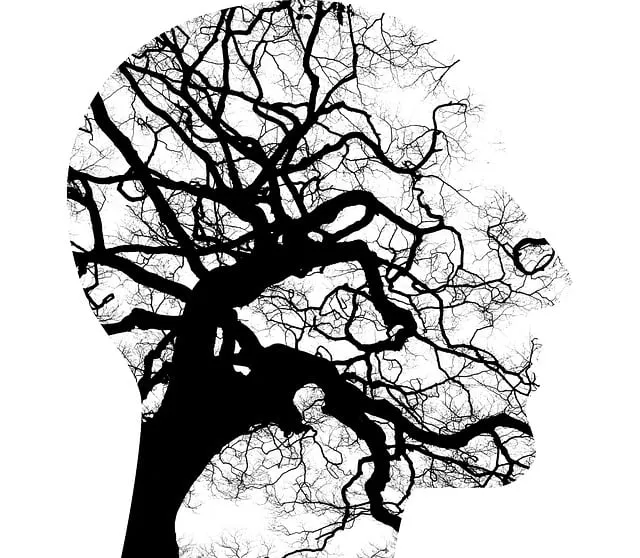Mental health professionals in Littleton face challenges accurately diagnosing conditions due to diverse symptoms and a wide range of disorders. Organizations like Kaiser Permanente are tackling this through comprehensive training, open communication, empathy-building, and advanced tools. They prioritize improving diagnosis accuracy with strategies such as AI algorithms, digital platforms, telemedicine, patient feedback integration, and cultural competency training. By implementing these measures, Kaiser ensures patients receive tailored support based on reliable assessments, leading to better mental health outcomes for good therapists in Littleton.
Mental illness diagnosis accuracy is a critical aspect of patient care, yet misdiagnoses remain prevalent. This article explores efforts to enhance diagnosis accuracy, focusing on strategies employed by organizations like Kaiser Permanente in Littleton. We delve into their approaches, including advanced training for therapists, leveraging technology, and patient feedback integration. By understanding these methods, we can improve mental health services and ensure patients receive the right care from well-trained professionals.
- Understanding the Challenge: Uncovering Misdiagnoses in Mental Health
- Kaiser Permanente's Approach to Enhancing Therapist Training
- The Role of Advanced Tools and Technologies in Diagnosis Accuracy
- Patient Feedback and Collaboration: A Key to Improvement
- Measuring Success: Evaluating the Effectiveness of Diagnosis Accuracy Initiatives
Understanding the Challenge: Uncovering Misdiagnoses in Mental Health

Mental health professionals face a complex challenge when it comes to diagnosis, with misdiagnoses being a significant concern in the field. Many factors contribute to this issue, from the vast spectrum of possible conditions to the subjective nature of symptom reporting. Unfortunately, this can lead to individuals receiving inappropriate or delayed treatment, impacting their overall well-being. For instance, someone experiencing symptoms of anxiety and depression might be mistakenly diagnosed with a more severe disorder, leading to unnecessary worry and potential side effects from misprescribed medications.
In light of these challenges, understanding the nuances of mental illness is paramount. Organizations like Kaiser Permanente, with their diverse therapist networks in areas such as Littleton, play a crucial role in advancing diagnosis accuracy. They employ strategies like ongoing training for therapists on the latest research and treatment methods, encouraging open dialogue among professionals to discuss complex cases, and promoting empathy-building techniques during patient interactions. These efforts aim to enhance the reliability of diagnoses, ensuring that patients receive tailored support based on accurate assessments.
Kaiser Permanente's Approach to Enhancing Therapist Training

Kaiser Permanente, a renowned healthcare provider, has been at the forefront of pioneering approaches to enhance mental health care. One of their notable initiatives focuses on improving therapist training in an effort to ensure does Kaiser have good therapists Littleton. This strategy involves comprehensive programs designed to equip therapists with advanced skills in various aspects of mental illness diagnosis and treatment.
By emphasizing positive thinking and integrating crisis intervention guidance, Kaiser Permanente aims to prevent depression and other common mental health issues. Their training modules include interactive workshops, peer supervision, and regular feedback sessions, fostering an environment conducive to continuous learning and improvement. This commitment to therapist development reflects a broader vision to provide exceptional care and improve the accuracy of mental illness diagnosis in their facilities.
The Role of Advanced Tools and Technologies in Diagnosis Accuracy

The integration of advanced tools and technologies is significantly enhancing mental illness diagnosis accuracy at healthcare facilities like Kaiser in Littleton. Innovative solutions such as artificial intelligence (AI) algorithms, digital assessment platforms, and telemedicine are playing a pivotal role in this improvement. AI-driven systems can analyze vast amounts of patient data, including symptoms, medical history, and behavioral patterns, to provide more precise and personalized diagnoses. For instance, AI models can identify subtle trends that might be missed by human experts, thereby enhancing the overall accuracy rate.
Additionally, Mental Wellness Coaching Programs Development and Mood Management techniques are being integrated into these technologies. These programs leverage data-driven approaches to offer tailored interventions for patients, improving their mental wellness outcomes. Healthcare Provider Cultural Competency Training is another critical aspect that ensures therapists and doctors can effectively communicate with a diverse patient population, further enhancing diagnosis accuracy and patient satisfaction, especially when considering the unique needs of individuals seeking therapy at Kaiser in Littleton.
Patient Feedback and Collaboration: A Key to Improvement

Patient feedback and collaboration play a pivotal role in enhancing mental illness diagnosis accuracy at healthcare facilities like Kaiser in Littleton. By actively involving patients in their treatment plans, therapists can gain valuable insights into an individual’s experiences, perceptions, and coping mechanisms. This patient-centered approach not only improves the reliability of diagnoses but also fosters trust and engagement between therapist and client.
Encouraging open dialogue through self-awareness exercises and promoting the development of a robust self-care routine can further strengthen this collaboration. By integrating Mental Health Policy Analysis and Advocacy into practice, therapists can ensure they stay updated with evidence-based strategies and advocate for patient rights, ultimately leading to more accurate and effective mental health care.
Measuring Success: Evaluating the Effectiveness of Diagnosis Accuracy Initiatives

Measuring success is a pivotal aspect when evaluating the effectiveness of initiatives aimed at improving mental illness diagnosis accuracy. Organizations like Kaiser, with locations such as their Littleton branch, employ various strategies to ensure the quality of care. This includes rigorous training programs for therapists, implementing evidence-based practices, and establishing robust systems for ongoing assessment and feedback. By tracking patient outcomes, satisfaction rates, and therapist performance, Kaiser can determine if its initiatives are making a positive impact on diagnosis accuracy and ultimately improving patient outcomes.
The success of these efforts is not solely gauged by the number of accurate diagnoses but also through enhanced patient experiences and improved access to appropriate Trauma Support Services. Public Awareness Campaigns Development plays a crucial role in educating both patients and therapists, fostering an environment where Compassion Cultivation Practices can thrive. These practices not only improve diagnosis accuracy but also create a more compassionate and understanding healthcare ecosystem, ensuring that patients receive the care they need and deserve.
Mental illness diagnosis accuracy is a multifaceted challenge, with misdiagnoses being all too common. Organizations like Kaiser Permanente are leading the way in improvement efforts, enhancing therapist training and leveraging advanced tools and technologies. Patient feedback and collaboration play a crucial role in refining these initiatives, ensuring that individuals receive the most appropriate care. By consistently evaluating the effectiveness of these efforts, such as Kaiser’s approach in Littleton, we can collectively move towards better mental health outcomes.






